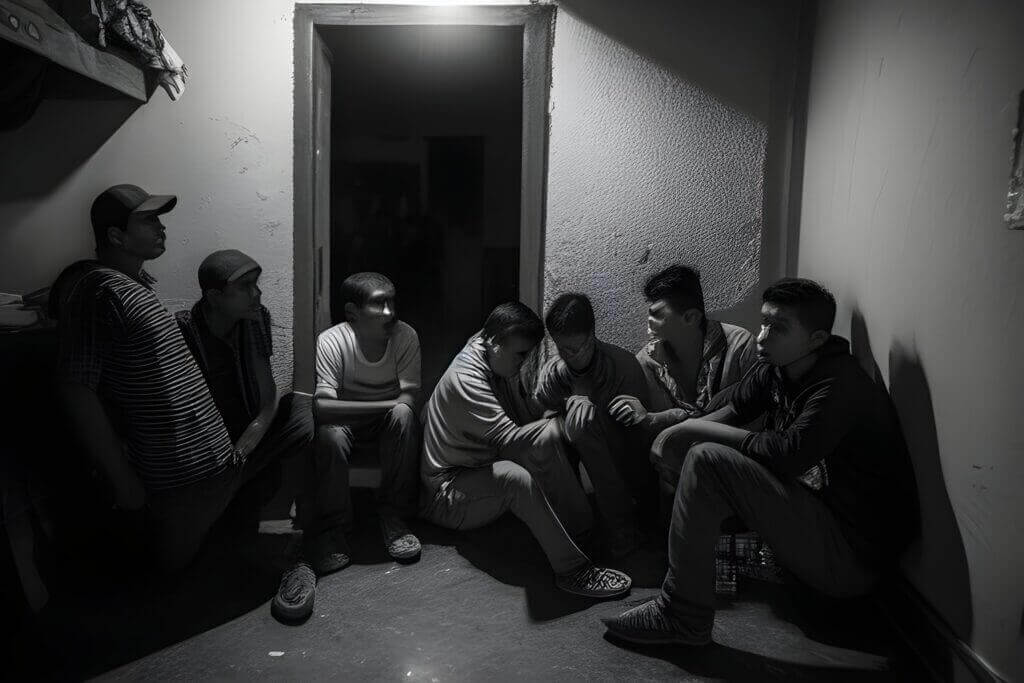As of March 30, workers with immigrant status across the country who did not dare to report labor rights violations because of their undocumented status will have a new tool to take action against abuses in their workplaces.
Thanks to the new standards, immigrant workers’ rights in the United States will be more secure and protected. Learn more about this regulation in this complete article.
If you have been a victim of any kind of abuse at work, at Jaskot Law, we can advise you on the matter. Contact us at +1 (410) 235-6868 or via email by using [email protected] for professional help.
New Rights for Immigrant Workers
On February 13, the U.S. Occupational Safety and Health Administration (OSHA) announced that the agency will be entitled to issue visa certifications to workers who have been victims of workplace abuse, regardless of their immigration status.
Previously, only law enforcement entities, prosecutors, or judges involved in a criminal investigation could issue visa certifications.
Now, thanks to these new standards, immigrant workers will be protected from employer retaliation related to their status.
In addition, these workers will be able to remain in the United States with legal status while OSHA investigates and prosecutes illegal practices in their workplaces.
What Visas can Abused Immigrant Workers Apply for?
Immigrants who have been victims of abuse in their workplace may now apply for a U Visa, or a T Visa, which will grant them temporary immigration benefits provided by the U.S. Citizenship and Immigration Services (USCIS).

Once the U Visa or the T Visa is granted, worker applicants can be legally employed, help their family members obtain immigrant status, apply for public benefits, and have a pathway to permanent resident status.
How to Access the New Rights?
According to the OSHA, applicants for a U Visa or a T Visa must have a certificate from a law enforcement agency before USCIS will consider their application.
Remember that both the U visa and T visa are available for victims of specific crimes who cooperate with law enforcement entities in the investigation and prosecution of such crimes without fear of retaliation based on their immigration status.

Therefore, although these new standards will allow workers with immigrant status to apply directly to OSHA, they must first have a certificate from a judicial or police agency proving their cooperation in the investigation of the crimes they have suffered.
In addition, while the applicants will be protected from deportation, and granted work authorization, those who have criminal records will not enjoy the same protections.
Conclusion
The OSHA‘s announcement marks an important strengthening of immigrant workers’ rights in the United States.
It is also worth noting that the standard was announced shortly after the U.S. Department of Homeland Security (DHS) offered an expedited process for the DACA application process to workers with immigrant status who have witnessed or been victims of labor abuses.
According to the New York Committee for Occupational Safety and Health (NYCOSH), an organization that provides worker safety training, OSHA certification, and rights training, there are about 200 cases of wage theft each year.
However, most workers are reluctant to call any federal agency out of fear of the retaliation they may face from their employers due to their undocumented status.

However, with these new standards proposed by OSHA, these workers will no longer be unprotected, and may feel more confident to report abuses in their workplaces.
It is thanks to these new regulations that NYCOSH, and other immigrant worker rights organizations in the United States, will have one more tool to fight against all those labor abuses that immigrant workers may be afraid to report.
It is worth mentioning that, while the new standards give undocumented workers some protection under the law, applying for a U visa or a T visa is far from easy. There are more than 200,000 U visa petitions waiting to be processed, and applicants can wait up to four years before being granted a visa.
Therefore, in case of any abuse in your workplace, or any doubt regarding your immigration status, it is advisable to consult with an immigration attorney who can advise you, and plan an appropriate legal course of action for your particular case.
If you are going through a difficult situation at your workplace, and have been the victim of a crime, at Jaskot Law, we can advise you on the matter. Contact us at 410-235-6868 or via email by using [email protected] for professional help.
Sources
New York Committee for Occupational Safety and Health (NYCOSH).
U.S. Occupational Safety and Health Administration (OSHA).
U.S. Department of Homeland Security (DHS).
U.S. Citizenship and Immigration Services (USCIS).
Frequently Asked Questions
What is the T Visa?
A T Visa is a type of visa that allows certain victims of human trafficking and members of their immediate family to stay and work temporarily in the United States.
What is the U Visa?
A U Visa, on the other hand, is a type of visa specially designed for victims of certain crimes occurring within the United States who have suffered physical or mental abuse, and provide assistance to law enforcement and government agencies in the investigation or prosecution of the crime.
Do U Visa, and T Visas allow application for family reunification?
Yes, both U Visa and T Visa can be applied for by the victim’s family. This is a coverage that generally includes the applicant’s children, and spouse over 21 years of age.
However, applicants under the age of 21 may include their children, spouse, parents, and siblings under the age of 18. Exceptions may even be made in cases where a family member is at risk of becoming a victim of human trafficking, or is in danger for cooperating with the authorities.
Do I have to pay a fee to apply for a U Visa or a T Visa?
No, the application for both types of visas is completely free of charge. In case you apply for the T visa, you may also file a fee waiver for other forms such as:
– Form I-765, Application for Employment Authorization.
– Form I-485, Application to Register Permanent Residence or Adjust Status.
– Form I-131, Application for Travel Document.
– Form I-192, Application for Advance Permission to Enter as a Nonimmigrant.
What documents do I need to apply for a U visa?
To apply for a U Visa, you will need to submit the following documents:
– Form I-918 (Petition for U Nonimmigrant Status).
– Form I-918 Supplement B (Certification of U Nonimmigrant Status) signed by an authorized law enforcement officer. The officer must confirm that you have contributed, or are likely to contribute, to the investigation or prosecution of your case.
– A personal statement describing the criminal activity of which you were the victim, along with evidence that establishes each of the eligibility requirements.
If there is an inadmissibility issue, you must file Form I-192 (Application for Advance Permission to Enter as a Nonimmigrant) to apply for a waiver of inadmissibility.
What documents do I need to apply for a T Visa?
To apply for a T Visa, you will need to submit the following documents:
– Form I-914 (Application for T Nonimmigrant Status) along with a personal statement explaining how you were a victim of human trafficking.
– Evidence that you have complied with reasonable requests for assistance from law enforcement agencies. To do so, you may file a Form I-914 Supplement B (Law Enforcement Officer’s Statement for Victims of Human Trafficking). You may also submit other evidence, in lieu of or in addition to, Form I-914 Supplement B, such as trial transcripts, court documents, police reports, newspaper articles, affidavits, or other relevant evidence.
– Evidence that you meet all the other eligibility requirements.
In addition, should you be considered inadmissible, you must file Form I-192 (Application for Advance Permission to Enter as a Nonimmigrant).

